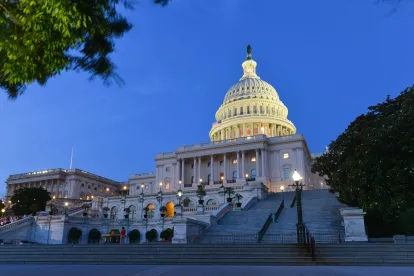Legislative Activity
FY 2016 Labor-Health and Human Services (HHS)-Education Appropriations
In the coming weeks, the House Appropriations Subcommittee on Labor-HHS-Education plans to release its FY 2016 appropriations bill to fund the Departments of Labor, Health and Human Services, and Education. When the draft bill is released, it will mark the first time the subcommittee has done so since FY 2013. In the past, this spending measure has been very controversial, partly due to the policy riders attached to the bill. In keeping with past years, we expect serious debate and contention over the bill as House Democrats already have expressed their displeasure with the Budget Committee only allocating $153.05 billion for the entire bill, representing a $3.7 billion cut from FY 2015. The Senate Appropriations Committee has not indicated whether it will release a Labor-HHS-Education bill this year, as it has not released or marked up any FY 2016 bills to date.
College Affordability and Innovation Act Reintroduced
Last Friday, Senators Chris Murphy (D-CT) and Brian Schatz (D-HI) and Representative Jim Himes (D-CT) reintroduced the College Affordability and Innovation Act. The legislation would tie institutions’ federal funding to demonstrated ability to meet affordability and outcomes goals by supplementing or withholding funding to institutions based on new accountability measures. In addition to implementing evaluations on college affordability, the bill also creates 1) a new evidence-based pilot program to encourage innovation and 2) a new commission to recommend minimum accountability standards for all institutions that receive Title IV dollars.
This Week’s Hearings:
-
Wednesday, May 20: The Senate Health, Education, Labor and Pensions Committee will hold a hearing at 10:00 a.m. titled “Reauthorizing the Higher Education Act: Exploring Institutional Risk-sharing.” Building upon the comments received on its risk-sharing white paper, the Committee will hear from panelists representing the American Enterprise Institute, Strayer Education, Inc., Young Invincibles, and Temple University.
Executive Branch Activity
Department of Education Recent Graduates Employment and Earnings Survey (RGEES)
As specified in regulations published last October and which will take effect on July 1, the Department of Education is required to develop an earnings survey to support gainful employment (GE) program evaluations. In a notice published last week, the Department announced that it will be collecting earnings data through a Recent Graduates Employment and Earnings Survey (RGEES) pilot test, which will “measure unit response rates and enable comparisons to earnings data collected through other surveys and in administrative records.” The RGEES pilot test results will compare “median earnings collected through the survey to median earnings for graduates from comparable programs based on a match to the Social Security Administration as part of the 2012 gainful employment informational rates.” The Department is inviting interested persons to submit comments on the proposed RGEES pilot test by July 13, 2015; it will publish the draft standards for survey administration in a future notice. The Department’s Information for Financial Aid Professionals (IFAP) website provides more detailed information on gainful employment regulations, training and resources.
Student Loan Issues
Much attention has been paid to student loan issues by policymakers in Washington, DC recently, as interest rates are set to drop, the Department of Education is expected to published new regulations on cash management of campus debit cards, and the Consumer Financial Protection Bureau (CFPB) begins to address student loan servicing issues. Specifically:
-
Interest Rates. For the first time since Congress tied student loan interest rates to the market two years ago, the annual rates will decrease by .37% for each loan category (Undergraduate Direct Loans, Graduate and professional Direct Loans, and Direct PLUS Loans) for the 2015-2016 year.
-
Cash Management Regulations. Because negotiated rulemaking committee members did not reach consensus early last year on proposed regulations relating to banks and other financial firms’ distribution of billions in grants and loans leftover after students pay their tuition and other costs, the Department decided to move forward in creating its own rules. Those rules will be officially published today and focus on debit and prepaid cards’ fees and charges, as well as checking accounts or other financial products marketed to students under an agreement with the college by financial institutions. They aim to ensure students have convenient access to their student aid dollars. Comments are due in early July.
-
CFPB Hearing. A hearing held last Thursday in Milwaukee, WI by the CFPB kicked off the bureau’s official inquiry into student loan servicing issues and the impact they have on student loan defaults. Department of Education Under Secretary Ted Mitchell, who spoke at the hearing, said servicers should aim for a 0% default rate for student borrowers and called for servicer incentives to align with that goal. He also reviewed actions currently underway at the Department as a result of President Obama’s Student Aid Bill of Rights that would simplify enrollment in income-based repayment programs, improve online financial literacy tools, and develop an integrated complaint system for borrowers. At the hearing, witnesses shared testimony about the pervasiveness of the problem with nearly 40% experiencing issues with servicers. As such, CFPB is soliciting comments to help policymakers and participants “improve borrower service, reduce defaults, develop best practices, assess consumer protections, and spur innovation.” Institutions of higher education are encouraged to submit comments, which are due by July 13. Such information will help inform implementation of executive actions under the Student Aid Bill of Rights.
Roxana Boyd is co-author of this article.




 />i
/>i

